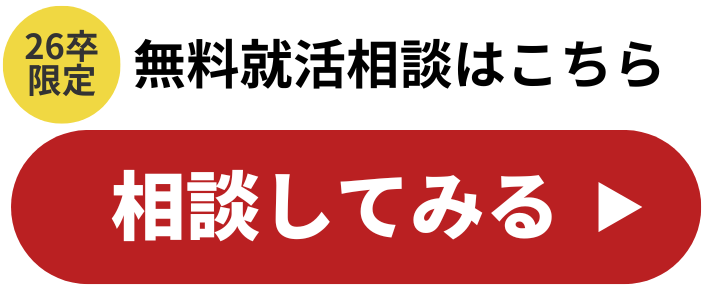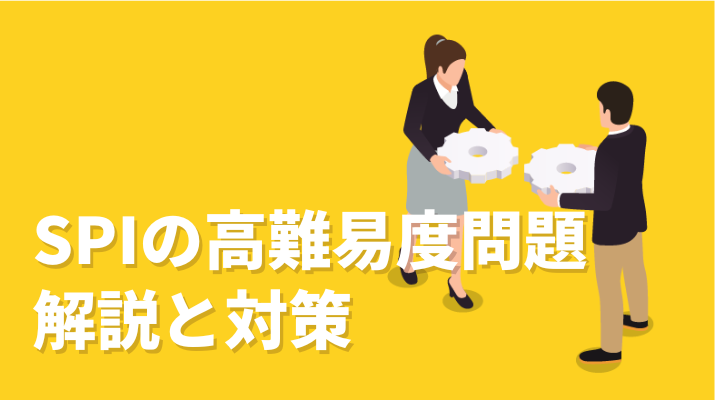The author explores the impact of cultural diversity on creativity:
"In a world rich with diverse cultures, creativity flourishes. The author argues that exposure to different perspectives, traditions, and ways of thinking fosters innovation. Cultural diversity, according to the author, is not just a reflection of society but a catalyst for creative breakthroughs. By embracing and celebrating diversity, individuals and communities can unlock a vast reservoir of ideas, leading to a more vibrant and dynamic creative landscape."
Question
**Fill in the blank (1) with an appropriate word.**
- "The author suggests that by embracing and celebrating diversity, individuals and communities can unlock a vast reservoir of __________, leading to a more vibrant and dynamic creative landscape."
例題:
A: (1) innovation
B: (1) potential
C: (1) talent
D: (1) Ideas
文は「著者は、多様性を受け入れ、祝うことによって、個人やコミュニティがアイデアの膨大な貯蔵庫を解放し、より活気あるダイナミックな創造的な風景につながると提案している」と訳す。
The author explores the impact of cultural diversity on creativity:
"In a world rich with diverse cultures, creativity flourishes. The author argues that exposure to different perspectives, traditions, and ways of thinking fosters innovation. Cultural diversity, according to the author, is not just a reflection of society but a catalyst for creative breakthroughs. By embracing and celebrating diversity, individuals and communities can unlock a vast reservoir of ideas, leading to a more vibrant and dynamic creative landscape."
Question
According to the author, why is cultural diversity considered a catalyst for creative breakthroughs?
例題:
A: Cultural diversity restricts the flow of ideas.
B: Exposure to different perspectives limits creative thinking.
C: Diversity brings together various ideas, fostering innovation.
D: Celebrating diversity has no impact on creativity.
Diversity brings together various ideas, fostering innovation.
著者がなぜ文化的多様性が創造的な突破口の触媒と考えられているかと問われている。
著者の意見は「C: 多様性はさまざまなアイデアを結びつけ、イノベーションを促進する」である。
The author explores the impact of cultural diversity on creativity:
"In a world rich with diverse cultures, creativity flourishes. The author argues that exposure to different perspectives, traditions, and ways of thinking fosters innovation. Cultural diversity, according to the author, is not just a reflection of society but a catalyst for creative breakthroughs. By embracing and celebrating diversity, individuals and communities can unlock a vast reservoir of ideas, leading to a more vibrant and dynamic creative landscape."
Question
Which of the following best summarizes the author's perspective on the relationship between cultural diversity and creativity?
例題:
A: Cultural diversity hinders creativity.
B: Creativity is irrelevant to cultural diversity.
C: Exposure to diverse cultures fosters innovation and creative breakthroughs.
D: Cultural diversity is a reflection of society but has no impact on creativity.
Exposure to diverse cultures fosters innovation and creative breakthroughs.
著者が文化的多様性と創造性の関係についてどのように考えているかが問われている。
著者の考えは「C: 異なる文化に触れることがイノベーションと創造的な突破口を促進する」である。
The author examines the impact of technology on interpersonal relationships:
"In the age of technology, communication has evolved, but the author raises concerns about its effects on interpersonal relationships. While digital platforms connect people globally, the author argues that true connection requires more than virtual interaction. Face-to-face communication, with its nuances and emotional depth, is essential for fostering meaningful relationships. The author suggests that balancing digital communication with real-world interactions is crucial to maintaining genuine human connections in this technological era."
Question
Fill in the blank with an appropriate word.
"The author suggests that achieving genuine human connections in the technological era involves balancing digital communication with real-world __________."
例題:
A: interactions.
B: relationships
C: engagements
D: experiences
The author suggests that achieving genuine human connections in the technological era involves balancing digital communication with real-world interactions.
著者は、テクノロジーの時代に真の人間関係を築くには、デジタルコミュニケーションと現実世界での相互作用をバランスよく取ることが不可欠であると提案している。
The author examines the impact of technology on interpersonal relationships:
"In the age of technology, communication has evolved, but the author raises concerns about its effects on interpersonal relationships. While digital platforms connect people globally, the author argues that true connection requires more than virtual interaction. Face-to-face communication, with its nuances and emotional depth, is essential for fostering meaningful relationships. The author suggests that balancing digital communication with real-world interactions is crucial to maintaining genuine human connections in this technological era."
Question
According to the author, why does true connection require more than virtual interaction?
例題:
A: Virtual interaction is superior to face-to-face communication.
B: Face-to-face communication lacks emotional depth.
C: Nuances and emotional depth are essential for meaningful relationships.
D: Balancing digital and real-world interactions is unnecessary.
Nuances and emotional depth are essential for meaningful relationships.
著者が真のつながりがバーチャルな対話以上を必要とする理由について問われている。
著者の意見は「C: ニュアンスと感情の深さは意味のある関係に不可欠である」である。
The author examines the impact of technology on interpersonal relationships:
"In the age of technology, communication has evolved, but the author raises concerns about its effects on interpersonal relationships. While digital platforms connect people globally, the author argues that true connection requires more than virtual interaction. Face-to-face communication, with its nuances and emotional depth, is essential for fostering meaningful relationships. The author suggests that balancing digital communication with real-world interactions is crucial to maintaining genuine human connections in this technological era."
Question
Which of the following best describes the author's perspective on technology and interpersonal relationships?
例題:
A: Technology enhances interpersonal relationships.
B: Digital platforms are sufficient for meaningful connections.
C: Face-to-face communication is crucial for fostering meaningful relationships alongside digital interactions.
D: True connections are irrelevant in the age of technology.
Face-to-face communication is crucial for fostering meaningful relationships alongside digital interactions.
著者がテクノロジーと人間関係に対する視点をどのように持っているかが問われている。
著者の考えは「C: デジタルとの相互作用と並行して、対面コミュニケーションが意味のある関係を育むために不可欠である」である。
The author delves into the importance of resilience in the face of challenges:
"In life, everyone encounters difficulties and setbacks. The author argues that the key to overcoming these challenges is resilience. Resilience is not merely the ability to bounce back from adversity but also the capacity to learn and grow through the experience. The author contends that viewing setbacks as opportunities for personal development fosters a resilient mindset, enabling individuals to navigate life's hurdles with strength and adaptability."
Question
Fill in the blank with an appropriate word.
"The author suggests that setbacks should be viewed not as obstacles but as opportunities for personal __________."
例題:
A: achievement
B: growth
C: challenge
D: development.
The author suggests that setbacks should be viewed not as obstacles but as opportunities for personal development.
著者は、逆境を障害ではなく、個人の発展の機会として見るべきだと提案している。
The author delves into the importance of resilience in the face of challenges:
"In life, everyone encounters difficulties and setbacks. The author argues that the key to overcoming these challenges is resilience. Resilience is not merely the ability to bounce back from adversity but also the capacity to learn and grow through the experience. The author contends that viewing setbacks as opportunities for personal development fosters a resilient mindset, enabling individuals to navigate life's hurdles with strength and adaptability."
Question
According to the author, what is resilience, and how does it contribute to overcoming challenges?
例題:
A: Resilience is avoiding challenges altogether.
B: Resilience is only about bouncing back from adversity.
C: Resilience involves learning and growing through challenges.
D: Resilience is an innate trait unrelated to personal development.
Resilience involves learning and growing through challenges.
著者がレジリエンスとは何であり、どのように困難を克服に貢献するかについて問われている。
著者の意見は「C: レジリエンスは困難を通じて学び成長することを含み、それが困難を克服するのに役立つ」である。
The author delves into the importance of resilience in the face of challenges:
"In life, everyone encounters difficulties and setbacks. The author argues that the key to overcoming these challenges is resilience. Resilience is not merely the ability to bounce back from adversity but also the capacity to learn and grow through the experience. The author contends that viewing setbacks as opportunities for personal development fosters a resilient mindset, enabling individuals to navigate life's hurdles with strength and adaptability."
Question
Which of the following best describes the author's thinking about overcoming challenges?
例題:
A: Overcoming challenges is easy for everyone.
B: Resilience is the key to overcoming challenges and growing through the experience.
C: Challenges should be avoided at all costs.
D: Learning and growth are irrelevant in the face of adversity.
Resilience is the key to overcoming challenges and growing through the experience.
著者が困難を乗り越えることについてどのように考えているかが問われている。
著者の考えは「B: 困難を克服し、経験を通じて成長するためには、レジリエンスが鍵である」である。
The author explores the concept of success and its various interpretations:
"In today's society, success is often measured by external factors such as wealth, fame, and societal recognition. However, the author challenges this conventional notion, proposing a different perspective. Success, according to the author, should be viewed as a personal journey marked by growth, fulfillment, and the pursuit of meaningful goals. Rather than being solely defined by societal standards, success, in the author's view, is an individual's unique path toward self-actualization."
Question
Fill in the blank with an appropriate word.
"According to the author, success is not just about external achievements but also about the individual's internal __________."
例題:
A: journey
B: perspective
C: motivation
D: mindset
According to the author, success is not just about external achievements but also about the individual's internal journey.
著者によれば、成功は外部の成果だけでなく、個人の内面の旅でもある。
The author explores the concept of success and its various interpretations:
"In today's society, success is often measured by external factors such as wealth, fame, and societal recognition. However, the author challenges this conventional notion, proposing a different perspective. Success, according to the author, should be viewed as a personal journey marked by growth, fulfillment, and the pursuit of meaningful goals. Rather than being solely defined by societal standards, success, in the author's view, is an individual's unique path toward self-actualization."
Question
According to the author, how should success be viewed?
例題:
A: Success is only achieved through wealth and fame.
B: Success is a journey marked by societal standards.
C: Success is a personal journey marked by growth and fulfillment.
D: Success is defined by external factors like societal recognition.
Success is a personal journey marked by growth and fulfillment.
著者が成功をどのように見るべきかを問われている。
著者の意見は「C: 成功は成長と充実感によって特徴付けられる個人的な旅である」である。
The author explores the concept of success and its various interpretations:
"In today's society, success is often measured by external factors such as wealth, fame, and societal recognition. However, the author challenges this conventional notion, proposing a different perspective. Success, according to the author, should be viewed as a personal journey marked by growth, fulfillment, and the pursuit of meaningful goals. Rather than being solely defined by societal standards, success, in the author's view, is an individual's unique path toward self-actualization."
Question
Which of the following best describes the author's thinking about success?
例題:
A: Success is solely measured by external factors like wealth and fame.
B: Success is primarily about societal recognition.
C: Success is a personal journey marked by growth and fulfillment.
D: Success is achieved by conforming to societal standards.
Success is a personal journey marked by growth and fulfillment.
著者が成功についてどのように考えているかが問われている。
著者の考えは「C: 成功は成長と充実感によって特徴付けられる個人的な旅である」である。
In his insightful exploration of understanding other people's minds, the author delves into various perspectives. Consider the following:
"People often struggle to comprehend the intricacies of one another's minds. The author presents four distinct viewpoints on this matter. Some argue that observation alone suffices, while others propose that engaging in deep conversations is the key. Additionally, a third perspective suggests that relying on body language provides valuable insights. Lastly, the author introduces the concept of empathy, emphasizing the importance of connecting with others on an emotional level."
Question
Fill in the blank with an appropriate word.
"Understanding someone's mind requires not just listening to their words, but also feeling their __________."
例題:
A: emotions
B: thoughts
C: intentions
D: perspective
Understanding someone's mind requires not just listening to their words, but also feeling their emotions.
誰かの心を理解するには、彼らの言葉を聞くだけでなく、彼らの感情を感じることも重要である。
In his insightful exploration of understanding other people's minds, the author delves into various perspectives. Consider the following:
"People often struggle to comprehend the intricacies of one another's minds. The author presents four distinct viewpoints on this matter. Some argue that observation alone suffices, while others propose that engaging in deep conversations is the key. Additionally, a third perspective suggests that relying on body language provides valuable insights. Lastly, the author introduces the concept of empathy, emphasizing the importance of connecting with others on an emotional level."
Question
According to the author, what is the best way to know what mind is?
例題:
A: Observation alone.
B: Engaging in deep conversations.
C: Relying on body language.
D: Practicing empathy.
Practicing empathy.
著者が心の中身を知るための最良の方法について問われている。
著者の意見は「D: 共感を実践することが最良である」が該当する。
In his insightful exploration of understanding other people's minds, the author delves into various perspectives. Consider the following:
"People often struggle to comprehend the intricacies of one another's minds. The author presents four distinct viewpoints on this matter. Some argue that observation alone suffices, while others propose that engaging in deep conversations is the key. Additionally, a third perspective suggests that relying on body language provides valuable insights. Lastly, the author introduces the concept of empathy, emphasizing the importance of connecting with others on an emotional level."
Question
Which of the following best describes the author's thinking about knowing other people's minds?
例題:
A: Observation alone is sufficient.
B: Engaging in deep conversations is the key.
C: Relying on body language provides valuable insights.
D: Empathy is crucial for understanding others.
Empathy is crucial for understanding others.
著者が他人の心を理解することについてどのように考えているか問われている。
著者の考えは「D: 他人を理解するためには共感が不可欠である」である。
The author explores different perspectives on the process of learning and acquiring knowledge:
"In the realm of education, opinions vary on the most effective approach to learning. Some advocate for a traditional classroom setting, emphasizing lectures and textbooks. Others argue for experiential learning, asserting that real-world applications enhance understanding. A third perspective suggests that a combination of both methods yields the best results. The author, however, introduces a unique stance, contending that fostering a genuine passion for a subject is the true catalyst for profound learning."
Question
Fill in the blank with an appropriate word.
"To truly excel in learning, it is not just about acquiring knowledge but also about igniting a profound __________ for the subject."
例題:
A: curiosity
B: passion
C: expertise
D: understanding
To truly excel in learning, it is not just about acquiring knowledge but also about igniting a profound passion for the subject.
真に学びを極めるためには、知識を身につけるだけでなく、主題に対する深い情熱を燃やすことも必要だ。
The author explores different perspectives on the process of learning and acquiring knowledge:
"In the realm of education, opinions vary on the most effective approach to learning. Some advocate for a traditional classroom setting, emphasizing lectures and textbooks. Others argue for experiential learning, asserting that real-world applications enhance understanding. A third perspective suggests that a combination of both methods yields the best results. The author, however, introduces a unique stance, contending that fostering a genuine passion for a subject is the true catalyst for profound learning."
Question
According to the author, what is the most effective approach to learning?
例題:
A: Traditional classroom settings.
B: Experiential learning in real-world applications.
C: A combination of traditional and experiential methods.
D: Fostering a genuine passion for a subject.
Fostering a genuine passion for a subject.
著者が最も効果的な学びのアプローチについて述べている。
著者の意見は「D: 主題に対する真の情熱を育むことが最も効果的である」である。
The author explores different perspectives on the process of learning and acquiring knowledge:
"In the realm of education, opinions vary on the most effective approach to learning. Some advocate for a traditional classroom setting, emphasizing lectures and textbooks. Others argue for experiential learning, asserting that real-world applications enhance understanding. A third perspective suggests that a combination of both methods yields the best results. The author, however, introduces a unique stance, contending that fostering a genuine passion for a subject is the true catalyst for profound learning."
Question
Which of the following best describes the author's thinking about the process of learning?
例題:
A: Traditional classroom settings with lectures and textbooks are essential.
B: Experiential learning in real-world applications is crucial.
C: A combination of traditional and experiential methods is optimal.
D: Fostering a genuine passion for a subject is the true catalyst for profound learning.
Fostering a genuine passion for a subject is the true catalyst for profound learning.
著者が学習プロセスについてどのように考えているかが問われている。
著者の考えは「D: 主題に対する真の情熱を育むことが、深い学びの真の触媒である」が該当する。
彼の成功はひとえに綿密な計画によるものです。
例題:
A: His success is a result of luck, not planning and effort.
B: Luck is the sole factor contributing to his success.
C: His success is solely due to careful planning.
D: Planning and effort played no role in his success.
E: Both luck and the result of planning and effort contribute to his success.
A: 彼の成功は計画や努力ではなく、運の結果です。
B: 彼の成功に貢献した唯一の要因は運です。
C: 彼の成功はひとえに綿密な計画によるものです。
D: 計画も努力も彼の成功には何の役にも立ちませんでした。
E: 幸運と計画と努力の結果の両方が彼の成功に貢献しています。
新しい環境で適応するためには、柔軟性が必要です。
例題:
A: Flexibility is essential to adapt to a new environment.
B: Adapting to a new environment requires rigidity.
C: You don't need flexibility to adjust to a new environment.
D: New environments demand inflexibility.
E: The key to adapting to a new environment is stubbornness.
A: 新しい環境に適応するには柔軟性が不可欠です。
B: 新しい環境に適応するには、柔軟性が必要です。
C: 新しい環境に適応するのに柔軟性は必要ありません。
D: 新しい環境では柔軟性が求められます。
E: 新しい環境に適応するための鍵は頑固さです。
彼女は苦労してキャリアを築き上げ、その結果、成功を収めた。
例題:
A: She struggled to build her career, and as a result, she achieved success.
B: Her success is solely based on her struggles and not her career.
C: Despite her efforts, she couldn't establish a successful career.
D: Her career was built effortlessly, leading to her success.
E: Success came to her without any effort in building her career.
A:彼女は苦労してキャリアを築き上げ、その結果、成功を収めた。
B: 彼女の成功は彼女のキャリアではなく、もっぱら彼女の苦労に基づいています。
C: 努力したにもかかわらず、彼女は成功したキャリアを確立できませんでした。
D: 彼女のキャリアは苦労なく築かれ、成功につながりました。
E: 彼女はキャリアを築くのに何の努力もせずに成功を掴みました。
彼の成功は彼の才能だけでなく、努力にも起因しています。
例題:
A: His success is solely due to his talent.
B: His success is not only due to his talent but also to his effort.
C: His success is a result of his talent alone.
D: His talent is the only factor contributing to his success.
E: His effort plays a minor role in his success.
A: 彼の成功はひとえに彼の才能によるものです。
B: 彼の成功は彼の才能だけでなく、努力にも起因しています。
C: 彼の成功は彼の才能だけの結果です。
D: 彼の才能が彼の成功に貢献した唯一の要因です。
E: 彼の努力は彼の成功に小さな役割を果たしています。
夢を実現するためには、努力が欠かせません。
例題:
A: Achieving dreams requires effort.
B: Effort is unnecessary for realizing dreams.
C: Dreams come true without any effort.
D: Realizing dreams is impossible with effort.
E: Lack of effort hinders dream realization.
A: 夢を実現するためには、努力が欠かせません。
B: 夢を実現するのに努力は必要ありません。
C: 夢は努力しなくても叶います。
D: 夢の実現は努力では不可能です。
E: 努力が足りないと夢の実現が妨げられます。
彼女が来ない理由はわからない。
例題:
A: The reason she doesn't come is unknown.
B: She won't come for some reason.
C: It's impossible to know why she doesn't come.
D: She has a reason not to come.
E: She never comes for some reason.
A: 彼女が来ない理由はわからない。
B: 彼女は何らかの理由で来ません。
C: なぜ彼女が来ないのか分かりません。
D: 彼女には来ない理由があるんだ。
E: 彼女は何らかの理由で決して来ません。
your general attitude to life and the world
例題:
A. purveyor
B. raffle
C. summary
D. adoption
E. outlook
人生や世界に対するあなたの一般的な態度
A.御用達
B.宝くじ
C.概要
D.採用
E.見通し
a moral or legal duty to do something
例題:
A. sunscreen
B. transition
C. timeline
D. obligation
E. attendance
何かをする道徳的または法的義務
A.日焼け止め
B.遷移
C.タイムライン
D.義務
E.出席
a company that makes large quantities of goods
例題:
A. mechanic
B. marketing
C. manufacturer
D. patron
E. robotics
大量の商品を製造する会社
A.メカニック
B.マーケティング
C.メーカー
D.パトロン
E.ロボティクス
the main building or offices used by a large company or organization
例題:
A. preference
B. headquarters
C. prescription
D. leadership
E. margin
大企業や組織が使用する本館またはオフィス
A.好み
B.本社
C.処方箋
D.リーダーシップ
E.マージン
a long passage between rows of seats in a church, plane, theater etc, or between rows of shelves in a shop
例題:
A. aisle
B. behalf
C. candidate
D. critic
E. garment
教会、飛行機、劇場などの座席の列の間、または店の棚の列の間の長い通路
A.通路
B.に代わって
C.候補者
D.評論家
E.衣服
one of the stages of a process of development or change
例題:
A. workforce
B. commuter
C. expertise
D. overview
E. phase
発展または変化のプロセスの段階の 1 つ
A.労働力
B.通勤者
C.専門知識
D.概要
E.フェーズ
Mr.Sato was surprised (A) that the accountant (B) was not familiar (C) of (D) the software (E) at that time.
例題:
A. that
B. was not
C. of
D. the
E. at
Mr.Sato was surprised that the accountant was not familiar with the software at that time.
佐藤氏はその時、会計士がソフトウェアに詳しくなかったことに驚きました。
(A) Despite (B) hard (C) studying (D) she (E) failed the exam.
例題:
A. Despite
B. hard
C. studying
D. she
E. failed the exam
この文での選択肢 "hard" は誤りです。正しい表現は "Despite studying hard, she failed the exam." です。
I have been learning English for (A) five (B) years, but (C) I still can't (D) speak (E) fluently.
例題:
A. five
B. years
C. I still
D. speak
E. fluently
この文では、"speak it fluently"というフレーズが正しい英語表現です。動詞 "speak" の後に目的語 "it" が来ることは一般的です。
"Voluntourism", which (A) is a combination (B) of volunteer and tourism, (C) is getting (D) more and more (E) commonly recent years.
例題:
A. is
B. of
C. is getting
D. more and more
E. commonly
この文章は主語が"Voluntourism"で動詞がisのため、Eにあたる部分は補語が来る。後ろに名刺もなく、補語は名刺もしくは形容詞でなければならないため、副詞は誤り。
訳
ボランティアと観光を組み合わせた "ボランツーリズム"は、近年ますます一般的になりつつある。
The meeting (A) in which we discuss (B) about a new employee (C) is scheduled (D) to (E) be held tomorrow.
例題:
A. in which
B. about
C. is
D. to
E. be held
discussは他動詞のため前置詞が不要になる。
The meeting in which we discuss a new employee is scheduled to be held tomorrow.
新入社員に関する打ち合わせが明日開かれる予定です。
The company (A) which (B) develops good quality products (C) are (D) growing (E) at an amazing speed.
例題:
A. which
B. develops
C. are
D. growing
E. at
選択肢Aは関係代名詞の役割を果たしているので、good quality productsまでが関係代名詞の形容詞節になる。よって、The company の動詞に当たるCは単数形のisになるのが適当。
The company which develops good quality products is growing at an amazing speed.
訳
良い製品を開発する企業は驚くべき速さで成長する
(1) (2) (3) (4) (5).
語群:
ア: was
イ: especially
ウ: journey
エ:The
オ:unexpected
例題:
A:(2)ア,(4)エ
B:(2)ウ,(4)イ
C:(2)エ,(4)オ
D:(2)ア,(4)オ
E:(2)エ,(4)ウ
The journey was especially unexpected.
特にその旅は予想外だった。
She (1) (2) (3) (4) (5).
語群:
ア:movie
イ:the
ウ:especially
エ:interesting
オ:found
例題:
A:(2)ア,(4)エ
B:(2)ウ,(4)イ
C:(2)イ,(4)ウ
D:(2)ア,(4)オ
E:(2)エ,(4)ウ
She found the movie especially interesting.
彼女はその映画が特に面白いと感じた。
Learning a new (1) (2) (3) (4) (5).
語群:
ア:instrument
イ:frustrating
ウ:can
エ:especially
オ:be
例題:
A:(2)ア,(4)エ
B:(2)ウ,(4)イ
C:(2)エ,(4)オ
D:(2)ウ,(4)エ
E:(2)エ,(4)ウ
Learning a new instrument can be especially frustrating.
新しい楽器を学ぶときは特にイライラすることがあります。
The book (1) (2) (3) (4) (5) readers.
語群:
ア:is
イ:for
ウ:young
エ:especially
オ:long
例題:
A:(2)ア,(4)エ
B:(2)ウ,(4)イ
C:(2)エ,(4)イ
D:(2)ア,(4)オ
E:(2)エ,(4)ウ
The book is especially long for young readers.
この本は若い読者にとって特に長いです。
The movie (1) (2) (3) (4) (5).
語群:
ア:was
イ:for
ウ:boring
エ:especially
オ:children
例題:
A:(2)ア,(4)エ
B:(2)ウ,(4)イ
C:(2)エ,(4)イ
D:(2)ア,(4)オ
E:(2)エ,(4)ウ
The movie was especially boring for children.
その映画は子供たちにとって特に退屈だった。
It is(1) (2) (3) (4) (5) to learn a new language.
語群:
ア:always
イ:for
ウ:exciting
エ:people
オ:difficult
例題:
A:(2)ア,(4)エ
B:(2)ウ,(4)エ
C:(2)エ,(4)オ
D:(2)ア,(4)オ
E:(2)エ,(4)ウ
It is always exciting for people to learn a new language.
新しい言語を学ぶのは、人にとっていつも刺激的なことです。
金融部門は直面する多くの困難にもかかわらず、恐らく安定を維持するだろう。
( ) many challenges facing the financial sector, it will probably remain stable.
例題:
A. Although
B. However
C. But
D. Meanwhile
E. Despite
A.しかし
B.ただし
C.でも
D.その間
E.にもかかわらず
同封のアンケートを記入し、ご返送ください
Plese complete the ( ) survey and return it to us.
例題:
A. enclosed
B. enclose
C. encloses
D. enclosing
E. enclosure
A.同封された
B. 同封する
C.同封
D. 同封すること
E. 同封
XWearは快適性や耐久性の最も厳しい基準に従って、ドイツで製造される。
XWear is constructed in Germany according to the ( ) standards for durability and comfort.
例題:
A. strictest
B. stricity
C. sctictness
D. more stricity
E. stricter
A.最も厳しい
B.厳格性
C.厳格さ
D.より厳格
E.より厳格
修正されたマニュアルは、今夜、全社員に送られます。
A copy of the ( ) manuals will be sent to all employees tonight.
例題:
A. repaired
B. revised
C. e-mailed
D. suspend
E. found
A.修理済み
B.改訂
C.電子メールで送信された
D.一時停止
E.発見
現在の旅行者の増加傾向は、来る休暇シーズンを通して続きそうだ。
The current upward trend in visitors is likely to continue ( ) the upcoming holiday season.
例題:
A. with
B. since
C. whenever
D. upon
E. through
A.とともに
B.以来
C.いつでも
D.その上
E.を通して
その主催者は寛大にも利益を寄付した
The organizers ( ) donated all profits from the event a charitable cause.
例題:
A. shortly
B. generously
C. poorly
D. sustainably
E. richly
A. すぐに
B. 寛大に
C. 悪い
D. 持続可能な方法で
E.豊かに
To behave in the way that most other people in your group or society behave
例題:
A. embark
B. refrain
C. explore
D. delete
E. conform
自分のグループや社会の他のほとんどの人々と同じように振る舞うこと
A.乗り出す
B.控える
C.探検する
D.削除
E.適合
To give all your attention and effort to one particular thing
例題:
A. equip
B. dedicate
C. generate
D. cater
E. compensate
ある特定のことにすべての注意と努力を注ぐこと
A.装備する
B.捧げる
C.生成
D.ケータリング
E.補償する
To officially announce that you have decided to leave your job or an organization
例題:
A. assign
B. specialize
C. resign
D. undergo
E. transform
仕事や組織を辞めることを正式に発表すること
A.割り当て
B.専門化する
C.辞任
D.受ける
E.変形
To be more than a particular number or amount
例題:
A. finalize
B. exceed
C. inspect
D. participate
E. qualify
特定の数または量を超えること
A.ファイナライズ
B.超える
C.検査する
D.参加する
E.資格を得る
to use all or most of your time, effort etc in order to do something or help someone
例題:
A. Erase
B. Entitle
C. Devote
D. Dispose
E. Contribute
何かをしたり誰かを助けるために自分の時間や労力などのすべてまたはほとんどを費やすこと
A. 消去する
B. 権利
C.献身的
D. 廃棄する
E. 貢献する
A period of time during which a service such as the electricity supply cannot be provided
例題:
A. novice
B. outage
C. phermacy
D. proficiency
E. raft
電気の供給等のサービスが提供できない時間帯
A.初心者
B. 停電
C.薬局
D. 熟練度
E.ラフト
Something that limits your freedom to do what you want
例題:
A. constraint
B. resist
C. delete
D. exclude
E. merger
やりたいことをする自由を制限するもの
A. 制約
B. 抵抗する
C. 削除
D. 除外する
E. 合併
add
例題:
A. irregal
B. exclude
C. invaluable
D. example
E. innovate
add:加える
A. irregal:不安にさせる
B. exclude:除外する
C. invaluable:もっとも重要な
D. example:例
E. innovate:革新する
fire
例題:
A. bite
B. shed
C. wire
D. site
E. hire
fire:解雇する
A. bite:噛む
B. shed:流す
C. wire:針金
D. site:現場
E. hire:雇う
poverty
例題:
A. wealth
B. stress
C. honor
D. power
E. destitution
poverty:貧困
A. wealth:富
B. stress:圧力
C. honor:名誉
D. power:権力
E. destitution:貧困(類義語)
conservative
例題:
A. peculiar
B. periodic
C. advanced
D. typical
E. absolute
conservative:保守的な
A. peculiar:固有の
B. periodic:定期的な
C. advanced:進歩的な
D. typical:典型的な
E. absolute:絶対的な
affirmative
例題:
A. affective
B. agreeable
C. formative
D. negative
E. valuable
affirmative:肯定的な
A. affective:感情的な
B. agreeable:快い
C. formative:形成する
D. negative:否定的な
E. valuable:価値のある
miserable
例題:
A. innocent
B. guilty
C. principal
D. fortunate
E. responsible
miserable:不幸な
A. innocent:無実の
B. guilty:有罪の
C. principal:主要な
D. fortunate:幸せな
E. responsible:責任のある
particular
例題:
A. significant
B. obscure
C. elementary
D. verbal
E. civil
A. significant:重要な
B. obscure:曖昧な
C. elementary:初歩的な
D. verbal:言語による
E. civil:市民の
vague
例題:
A. obscure
B. exposed
C. irresponsible
D. invaluable
E. obvious
A. obscure:不明瞭な
B. exposed:さらされた
C. irresponsible:無責任な
D. invaluable:もっとも重要な
E. obvious:明白な(対義語)
consent
例題:
A. agree
B. oppose
C. hinder
D. conserve
E. assess
consent:同意する
A. agree:同意する
B. oppose:反対する(対義語)
C. hinder:~を妨げる
D. conserve:~を保護する
E. assess:評価する
proof
例題:
A. creation
B. surface
C. instability
D. passion
E. evidence
A. creation:創造
B. surface:表面
C. instability:不安定さ
D. passion:情熱
E. evidence:証拠
obvious
例題:
A. actual
B. accurate
C. evident
D. absolute
E. vague
evident:明白な
A. actual:実際の
B. accurate:正確な
C. evident:明白な
D. absolute:絶対的な
E. vague:曖昧な(対義語)
cooperative
例題:
A. affiliated
B. collaborated
C. tactful
D. principal
E. actual
cooperative:協同の
A. affiliated:連携した
B. collaborative:協同の
C. tactful:気の利いた
D. principal:主要な
E. cognitive:認識の
official
例題:
A. primary
B. accepted
C. correct
D. formal
E. equal
official:公式の
A. primary:主要な
B. accepted:容認された
C. correct:正しい
D. formal:公式の
E. equal:等しい











